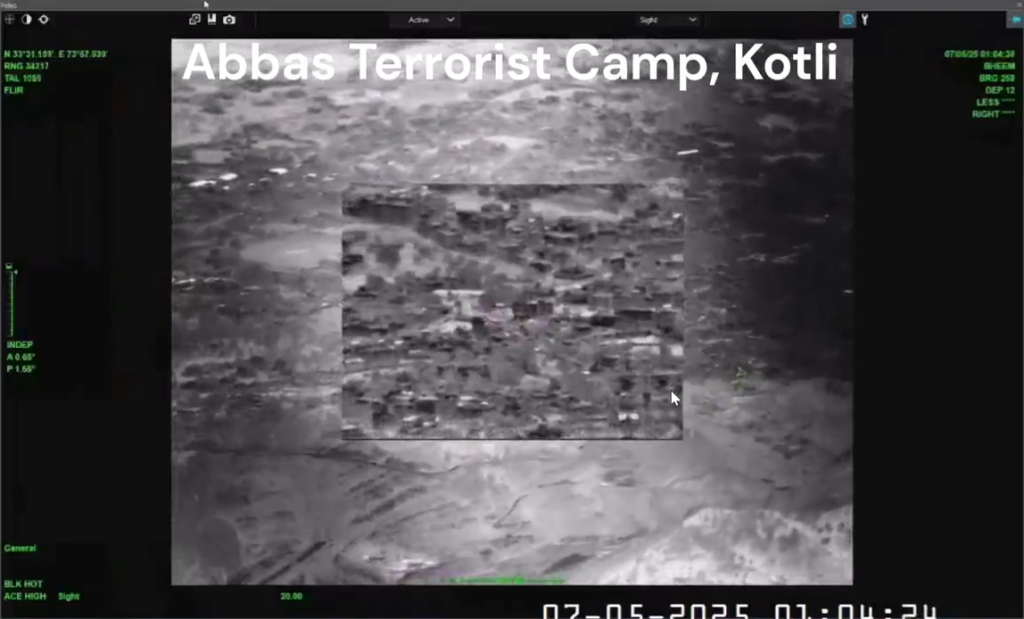India Claims Air Strikes On Pakistan Were Preemptive Measure
India claims its air force struck nine facilities used by a Pakistani terrorist group it blames for an attack on tourists in India-controlled Kashmir last month, saying the attacks into Pakistan and Pakistan-controlled Kashmir were needed to preempt further terrorist attacks.
The “Operation Sindoor (Vermillion)” strikes saw Indian Air Force aircraft attack four sites in Pakistan and five sites in Pakistan-controlled Kashmir that New Delhi claims to be headquarters and training facilities for the Lashkar-e-Taiba, Jaish-e-Mohammed, and Hizbul Mujahideen terrorist groups, all of which are accused of being proxies for Pakistan’s Inter-Services Intelligence.
Following the air strikes, Indian and Pakistani soldiers in Kashmir have traded fire across the Line of Control separating the parts of Kashmir controlled by India and Pakistan, including artillery barrages.
In an initial statement shortly after explosions in Pakistan and Kashmir were reported in the early hours of May 7, India’s defense ministry confirmed that it had conducted air strikes, claiming that “our actions have been focused, measured and non-escalatory in nature. No Pakistani military facilities have been targeted. India has demonstrated considerable restraint in selection of targets and method of execution”.
Four Indian Kashmiri officials that spoke to Reuters after the strikes claimed that three Indian Air Force aircraft crashed in the region after the strikes, with the pilots hospitalized. Indian officials did not acknowledge or take any questions on the claimed aircraft losses during a Wednesday morning press conference on the strikes, instead providing what they claimed to be targeting sensor footage of the strikes on the facilities, which they claimed were necessary to preempt further attacks.
Before the press conference, the Indian military said the air strikes were its response to the April 22 Pahalgam terrorist attack that killed 26 civilians, with reports that the gunmen had singled out non-Muslim men to be killed inflaming Hindu nationalist sentiment. The Indian government had previously suspended the Indus Waters Treaty sharing water with Pakistan following the attack, reducing the amount of river water that would otherwise be shared with Pakistan under the agreement.
The head of public relations for Pakistan’s military branches, Gen. Ahmed Chaudhry, has claimed that “at no time any of (India’s) aircraft were allowed to enter into Pakistan’s airspace and also at no time, none of Pakistan’s aircraft went into Indian airspace”, despite the Pakistan Air Force’s claims to have shot down five Indian Air Force aircraft. While photographs of what are claimed to be Indian Air Force aircraft wreckage have surfaced online, nothing has been independently confirmed so far.
Pakistan’s military insists that all of the locations struck by the Indian Air Force were civilian housing, with 26 civilians killed and 46 more said to be injured as of writing. Jaish-e-Mohammed, one of the groups New Delhi claims to have targeted, has claimed that the strikes killed 10 relatives of its leader Masood Azhar.
In a press address India’s Defense Minister Shri Rajnath Singh said: “India has used its ‘Right to Respond’ to respond to the attack on our soil. We have destroyed the targets we had set, with precision, at the right time and as per the planned schedule. Indian forces have created a new history by displaying their amazing valor and courage.”
Pakistani Prime Minister Shehbaz Sharif said after the air strikes that “Pakistan reserves the absolute right to respond decisively to this unprovoked Indian attack — a resolute response is already underway”.

